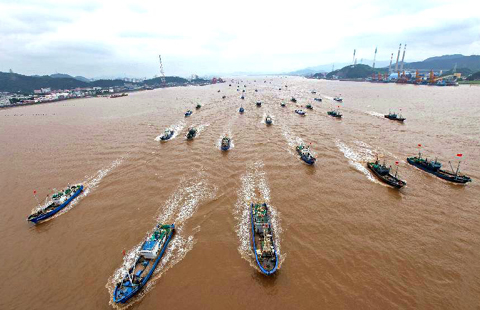New momentum over China-Singapore economic corridor
(Xinhua) Updated: 2014-09-18 10:16Do Tien Sam, former director of the Institute of Chinese Studies of the Vietnam Academy of Social Science, predicted that the corridor will create jobs and alleviate poverty.
Through the scheme, China aims to elevate bilateral trade with the ASEAN to $500 billion by 2015 and one trillion US dollars by 2020.
Why Singapore?
Singapore, at the southernmost tip of the peninsula, has favorable characteristics including a highly developed economy and close trade ties with China.
The country's prime minister, Lee Hsien Loong, said at a round-table meeting during the expo that Singapore boasts the most convenient investment environment among the ASEAN member countries, which -- combined with good infrastructure -- can help reduce investment costs.
Currently, over 5,200 Chinese companies have financial interests in Singapore. Chinese players in Singapore like Sinochem, COSCO, Huawei, Wanke, and e-commerce leaders Alibaba and Jingdong hope to use the economic hub as a springboard to explore the larger Southeast Asian market.
In 2013, the Industrial and Commercial Bank of China's branch in Singapore was designated as the clearing bank for the Chinese currency renminbi. It became the first clearing bank outside of China markets in a big step for Singapore as it seeks to establish itself as an renminbi offshore clearing center.
China became Singapore's largest trade partner last year, while Singapore is China's second-largest trading partner among ASEAN countries.
As the destination of the corridor, Singapore is likely to benefit as investment and goods will roll to the country more easily. Its position as a regional economic center will be reinforced.

- Home prices decline in most Chinese cities in August
- China's high-growth aviation gains global concerns
- Cambodian telecom firm cooperates with Huawei to build 4G network
- Trade growth is Dubai's new 'desert miracle'
- Baijiu industry banks on surge in online sales
- More tax breaks for small Chinese firms
- BYD G5 connects owners with smartphones
- Cross-border trade settled in yuan drops in July

















